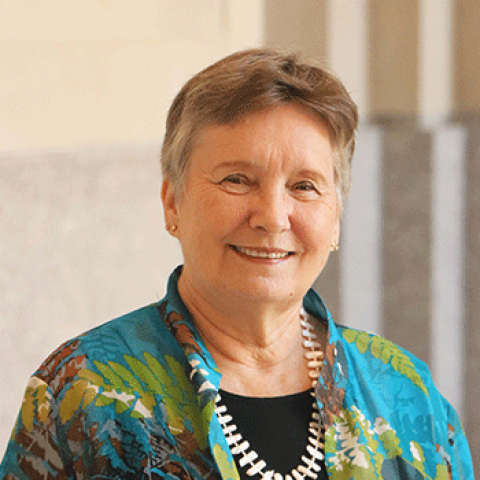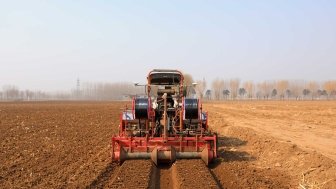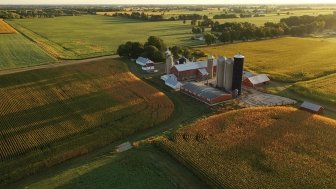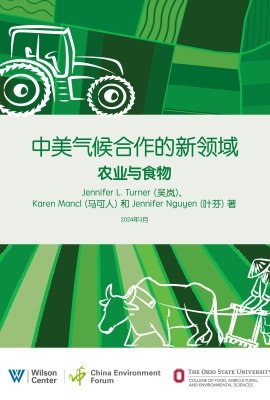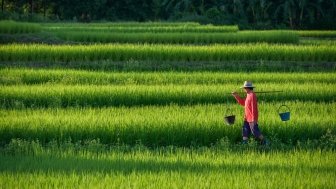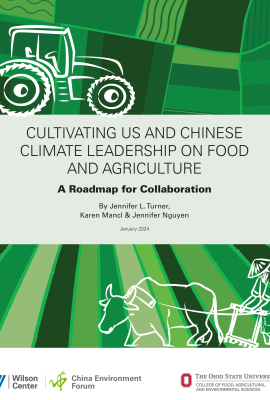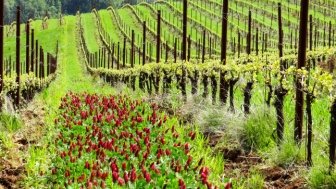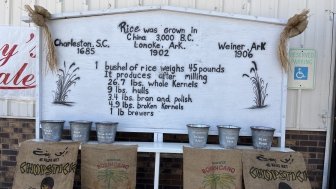Professional Affiliation
Professor in the Department of Food, Agricultural and Biological Engineering at The Ohio State University
Expert Bio
Dr. Karen Mancl is a Professor of Food, Agricultural and Biological Engineering and Water Quality Specialist at The Ohio State University where she has published over 50 journal articles and 80 Extension publications on rural infrastructure and outreach initiatives.
She is a nationally known expert in onsite wastewater treatment having conducted research, written and taught the subject for 40 years. Dr. Mancl is Past-President of the Ohio Onsite Wastewater Association.
In 2000, along with Dr. Brian Slater, Soil Scientist, constructed the OSU Soil Environment Technology Learning Lab. At this outdoor teaching and research facility, Drs. Mancl and Slater teach designers, installer and regulators the science and technology of onsite wastewater treatment. In 2014, she expanded the Learning Center to a SW branch in Harrison, Ohio where with Ryan Kopp teaches food processors, operators and engineers about low-cost treatment of food processing wastewater.
She is originally from Wisconsin where she received her Bachelor's Degree in Environmental Science from the University of Wisconsin-Green Bay.
Karen has a Master's Degree in Environmental Science from the University of Texas, and received her PhD at Iowa State University in Water Resources.
In 2010 she received a second Master's Degree in East Asian Studies and conducts research and teaches wastewater treatment in rural China.
Karen has written several posts on environmental issues in rural China which were featured in NewSecurityBeat, the Woodrow Wilson Center’s Environmental Change and Security Program blog: “China’s Hollow Villages Undergo a Transformation” (April 2019), “Reclaiming China’s Worn-out Farmland: Don’t Treat Soil Like Dirt” (May 2019), “Not Too Big—Not Too Small—Just Right: Sand Bioreactor Wastewater Treatment in Chinese Villages" (May 2019), and "Pig Disease is Creating a Mountainous Solid Waste Problem" (February 2020).
Expertise
- Environment
- Food and Agriculture
- Science and Technology
Wilson Center Project
Planting the seed for renewed agricultural collaboration between the United States and China
Project Summary
The Scientific Cooperation Exchange Program (SCEP) between the USDA and China’s Ministry of Agriculture (MOA) is the oldest and longest running scientific collaborative program starting in 1978. Little has been written about the impact and success of this decades long USDA/MOA program and it has the potential to serve as a model to reengage with China in a post-COVID world. The objectives of this project are to: o Propose a new scientific cooperative exchange program that embraces both in-person and virtual approaches to personnel exchange. o Explore a new, shared U.S./Chinese agricultural research agenda in the wake of climate change, pandemic diseases for both humans and animals and changing food demand.
Major Publications
- Mancl, K, R Kopp and O Tuovinen. 2018. Treatment of meat-processing wastewater with a full-scale, low-cost sand/gravel bioreactor system. Applied Engineering in Agriculture. 34(2):403-409. Doi.org/10.13031/aea.12683.
- onroy, K, K Mancl. 2022. Understanding adoption of urine diversion dry toilets (UDDT) in low and lower-middle income countries using diffusion of innovation framework. Journal of Water, Sanitation and Hygiene for Development. 12(12):905-920. Doi:10.2166/washdev.2022.154
- Gao, HH, Q Liu, CR Yan, K Mancl, DZ Gong, JX He and XR Mei. 2022. Macro-and/or microplastics as an emerging threat effect crop growth and soil health. Resources, Conservation and Recycling. 186(2022):106549. https://doi.org/10.1016/j.resconrec.2022.106549
